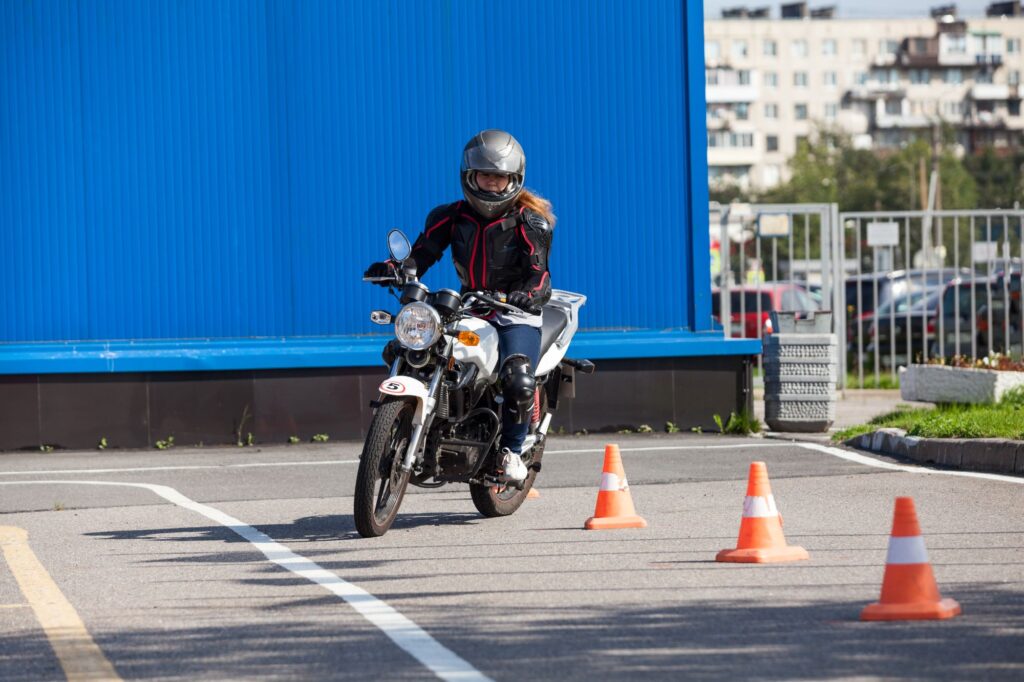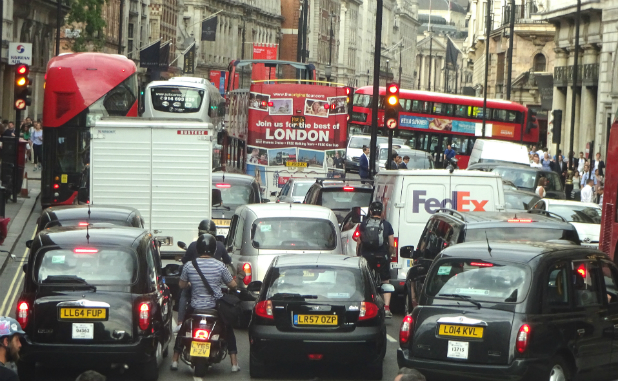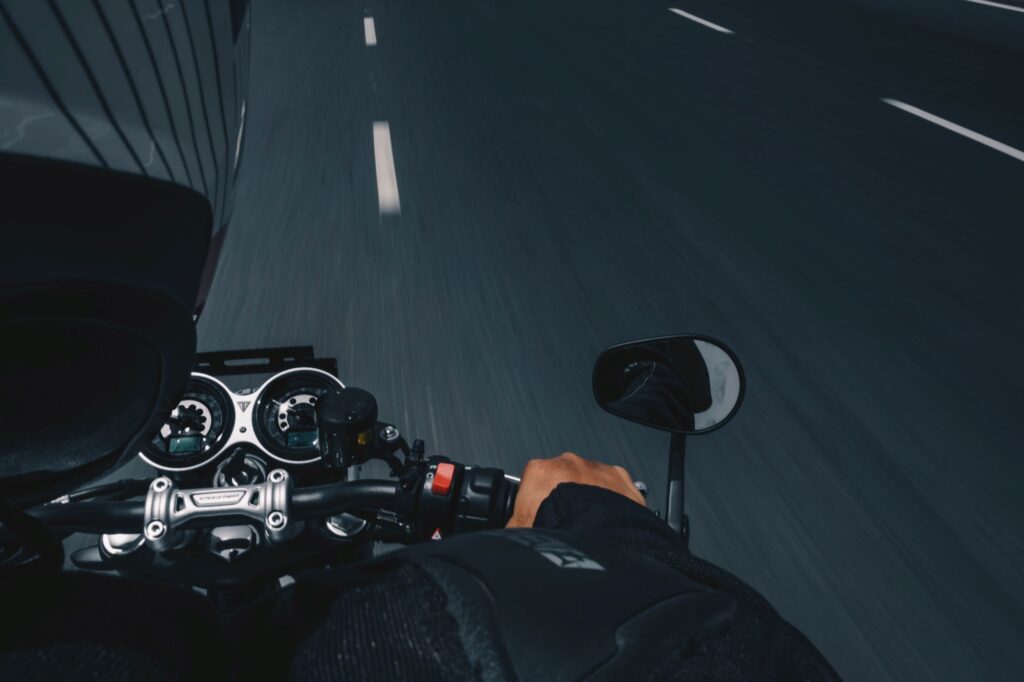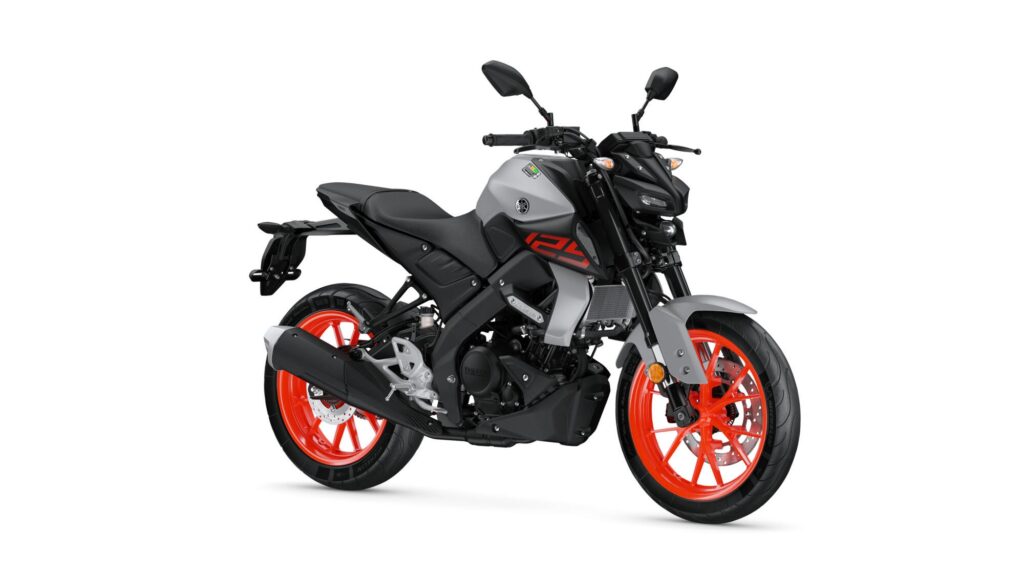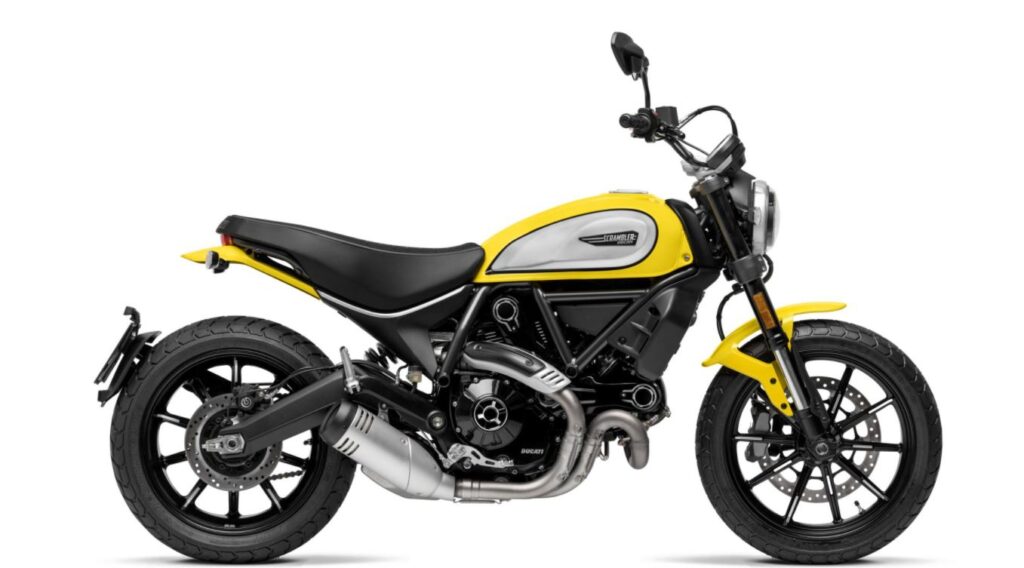King of the superbikes – and later of the jungle – Carl Fogarty dominated bike racing the 1990s with four world titles and a ruthless desire to win.
On November 22 and 23 visitors to the Motorcycle Live show at the NEC in Birmingham will have the chance to meet the legend on the Bikesure stand.
We take a look back at the great man’s career.
Undoubted biking superstar, and a super-hero to his legion of fans, Carl “Foggy” Fogarty was living proof that any aspiring kid could achieve their dreams – if they’re prepared to break a few bones along the way.
His partnership with Ducati, on which he won all four of his World Superbike titles, was broken just once between 1992 and 2000, when he switched to Honda in 1996, finishing 4th overall.
A spiky, combative lad from Blackburn, he did more than anyone to elevate superbike racing to a new stratosphere in the ‘90s, culminating in a then world record crowd of 120,000 at Brands Hatch in 1999.
The swaggering boy-next-door, an everyman with the hyper-intense stare and terrifying riding style became an icon in a sport that rewarded bravery and skill in equal measure.

Apart from possessing an abundance of both, what set Foggy apart from his competitors was an unshakeable desire to win, to never settle for second place, even when it would possibly have been prudent to do so.
That in-built winning mentally was all-too-evident on what would prove to be his final competitive ride, a typical surge through the field on a drying track that nearly cost him his life.
On April 25, 2000 at Phillip Island in Australia, Foggy had already finished second in the opening race, but got off to a poor start in the second and began tearing past his rivals.
In a bid to pass Robert Ulm, who was having engine troubles, Foggy collided with the Austrian’s Ducati at 150mph.
The world held its breath as he lay by the track, apparently lifeless. When he eventually came round in hospital, the first question he asked his wife, Michaela, was whether he’d be fit to race at Donington, just three weeks’ later.
It was typical of the man but, sadly, he was never seen on the grid again, the triple break in his humerus – which connects the shoulder to the elbow – too severe to ever again take the strain of racing at the top level.
He has since described the decision to quit as a relief, telling The Big Issue: “I felt the opposite of how I imagined I’d feel.
“I felt relief knowing that the pressure and expectation, the crowds and the TV, feeling sick every Sunday morning knowing I had to go out and everyone expected me to win – it was all gone. I actually thought, phew, thank God. Then I turned the TV off and cancelled the main papers that covered racing.”
It also ensured he would go out at the very top of his game; age would never diminish him, he would always be a champion.
Born in Blackburn July 1, 1965, Foggy’s father, George, was a biker and raced as an amateur on the road circuit, buying his son his first motocross bike, a used Suzuki RM100, when he was 13.

He made his competitive motocross debut at 14, and watched his father compete in the Isle of Man TT in 1983, the 18-year-old coming away thinking “I can beat this lot”.
Three years later, he returned to the Isle of Man as a competitor, running in sixth before retiring with mechanical failure.
He went on to win the TT’s Production 750 race in 1989, returning the following year with a double win on the island, taking the Formula 1 and senior trophies.
He told MCN in 2016 that winning the senior title, by a huge 50 seconds, “meant everything”.
“It was something I had dreamt about doing since I was a little kid,” he said. “I was crying before I even got to Creg Ny Baa. I was crying as I crossed the line.”
Taking the senior TT lap record in 1992 was another highpoint from 26 starts on the island throughout his career.
But by then, the Superbike World Championship, which had been launched in 1988, was calling, and Foggy competed in the 1991 season for Neil Tuxworth’s Honda UK team, finishing seventh overall.
The world got its first true taste of what the man from the north west could do the following year when he took his maiden superbike win, an unexpected triumph on a privateer Ducati at Donington Park.
It was that win, on what he has called “a slow bike”, that earned him a factory ride with Ducati in 1993, and the legendary partnership was born.
Alongside competing in the European rounds of world superbikes in 1992, he also found time to win the FIM World Endurance Championship for Kawasaki.
With Sky Sports showing world superbike racing live, what followed over the next few years was to propel Foggy to superstardom, with a growing TV audience increasingly flocking to watch the action live at circuits.
Despite winning 11 races to the American Scott Russell’s four in his debut season with Ducati, Foggy finished second in the championship thanks to Russell’s 12 second-placed finishes.
The British rider was not happy, and losing a title he should have won spurred him on to new heights and a titanic battle for the crown in 1994.
The Brit v Yank head-to-head gave the sport previously unheard of coverage, and drove superbikes into more and more homes.
Riding the new Ducati 916, a winning start at Donington was followed by a broken wrist and no points at Hockenheim, which meant he was seriously compromised by a cast on his arm three weeks later at Misano.
Russell had built up a 56-point lead, but Foggy hit back with double wins at Albacete, Zeltweg and Assen, as well as firsts at Sentul in Indonesia and San Marino.
He went into the final pair of races at Phillip Island with a five-point lead and, after beating the American into second in the first race, was handed the title when Russell waved him through in the finale and retired to the pits.
He had become the first British rider to win the championship, and later said: “As I came over the line the pitboard said ‘World Champion’ and I was bawling my eyes out. I was an emotional wreck. Most emotional moment of my life.”

It was the start of a golden era for Foggy, who blew the opposition away in 1995, winning 13 races and adding six second-placed finishes.
To many people’s surprise, Foggy parted company with Ducati for the 1996 season, switching to the factory Honda team in a bid to win the title with a second manufacturer.
Despite his best efforts, he could only finish fourth behind Australian Troy Corser, and he was back with Ducati for the 1997 season, but lost out to American John Kocinski, a former Grand Prix world champion and the man who replaced him at Honda.
What Foggy sees as the natural order was restored the following year, when he regained his title by just 4.5 points ahead of long-time rival, New Zealander Aaron Slight, on a Honda.
There was nothing close about 1999’s runaway triumph, the reigning champion winning eight of the first 14 races, including what would prove to be his final win at Donington.
A double win in Italy set things up nicely for Brands Hatch, in front of a record 120,000 crowd desperate to see Foggy continue his surge to the title.
It didn’t work out like that, the home favourite later admitting that he got distracted by the enormity of the whole weekend.
“I look back now and can’t believe I allowed myself to do so much stupid stuff,” he told MCN. “Even in qualifying I was wired up to talk a fast lap for one of my sponsors. Eventually I got pole but that was only by riding like an idiot for the whole lap. I had virtually crashed at every corner.
“I was sat there on pole knowing I couldn’t win because we hadn’t got any of the race distance stuff done. I had no idea what tyre I was going to use. The one I did pick fell apart and I had to get straight back to the pits.
“Getting back to the pits, all I could hear were airhorns, shouting and the crowd going mad. The team got the bike up on the stand which then snapped. It felt like a dream but I was very calm.
“By the end of the day I was in pieces. I felt like I had let down every single one of the people there but none of them seemed to mind a bit (Foggy was 19th in race one and fourth in race two). I couldn’t understand it at all.”
He wrapped up the title at Hockenheim with his last race win in world superbikes.
More of the same was expected the following year, but the curtain came down on an extraordinary career at Phillip Island and the crash that ended it all.
He returned to world superbikes in 2002 as team owner of Foggy Petronas Racing, but the Petronas FP1 was never truly competitive and he turned his attention to other projects.
In 2014, Foggy won a whole new army of admirers outside his traditional biker fanbase, emerging from the 14th series of I’m a Celebrity as King of the Jungle.
He described the experience as “one of the greatest things I’ve ever done in my life”, and winning as “the best thing that’s ever happened to me”.
Already adored by superbike fans, it clearly meant a lot to earn the respect of the wider public just for being Foggy.
Foggy has been an ambassador for Bikesure since 2012.
Bikesure can offer bikers throughout the UK great rates on their motorbike insurance, with a particular emphasis on helping those motorbike owners who have been overlooked by the traditional insurance companies and brokers.

